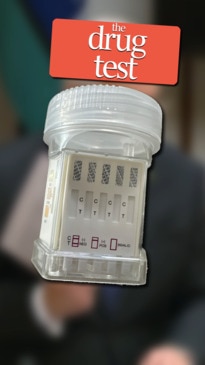Michael Warner: The AFL is on notice to clean up footy’s dirty drugs problem
By going soft on footballers who took drugs, the AFL has opened the door to criminal infiltration and corruption, writes Michael Warner. So, who’s to blame? And where’s the solution?
If the AFL is looking for someone to blame for the furore surrounding its deeply flawed illicit drugs policy, the Melbourne Football Club is the place to start.
Thanks to the botched execution of former Demons president Glen Bartlett and the boardroom war that followed, Sport Integrity Australia was gifted access to the inner workings of a clandestine policy that has allowed drug taking players to run the gauntlet around footy’s dubious three-strikes policy for almost two decades.
The Bartlett dispute piqued the interest of federal MP Andrew Wilkie, which led him to former Melbourne doctor-turned-whistleblower Zeeshan Arain, who told him the truth about rampant drug use within the game.
Dr Arain confessed to Mr Wilkie about the prevalence of “off-the-books” drug tests – authorised by the AFL – and the faking of injuries to help players evade detection on match days. The medico estimated that one third of the Melbourne FC squad were “frequent” drug users and another third “occasionally” used illicit drugs.

Bartlett and Shaun Smith, the father of accused cocaine trafficker and exiled Demons footballer Joel Smith, also opened up to Mr Wilkie about football’s festering drug culture.
The shocking human toll was then exposed when Eddie Balic, father of ex-Melbourne and Fremantle footballer Harley Balic – who died after a battle with substance abuse two years ago – revealed that he blamed the AFL and its illicit drugs policy for his tragic death.
The game changed for the AFL in March when Mr Wilkie stood up in federal parliament and blew the whistle on the goings-on, triggering a four-month SIA investigation.
In essence, the AFL has been overseeing a drugs policy that allows players to take cocaine, methamphetamine and ecstasy repeatedly – without penalty – leading to addiction and for some jail and even death.
And by going soft on footballers who took drugs, the AFL had opened the door to criminal infiltration and corruption, making them vulnerable to bikies and organised crime gangs who either sell them the drugs, or witness them taking drugs.


The league’s spin doctors were hard at work even before Monday’s SIA announcement, rolling out a puff piece with AFL mental health boss Kate Hall to spruik the “harm minimisation” basis behind the policy.
After SIA said it could not find any evidence, other than the statements from Dr Arain, that injuries were “feigned” by players after failing tests, the AFL was quick to point out how the agency did not conclude its regime had breached the WADA code.
But that will be little comfort to Mr Balic and the parents of many other young footballers entrusted into the league’s care as teenagers and who came out the other end as full-blown drug addicts.
SIA chief David Sharpe, a former Australian Federal Police officer who pursued drug cartels in Mexico, Colombia and Vietnam, said on Monday that the AFL and other sporting codes had reached a “crossroad” over illicit drugs.
A host of AFL acolytes will be hard at work in the coming days downplaying the significance of the SIA report. But there should be no doubt that the league is on notice to clean up footy’s dirty drugs problem.

Originally published as Michael Warner: The AFL is on notice to clean up footy’s dirty drugs problem



